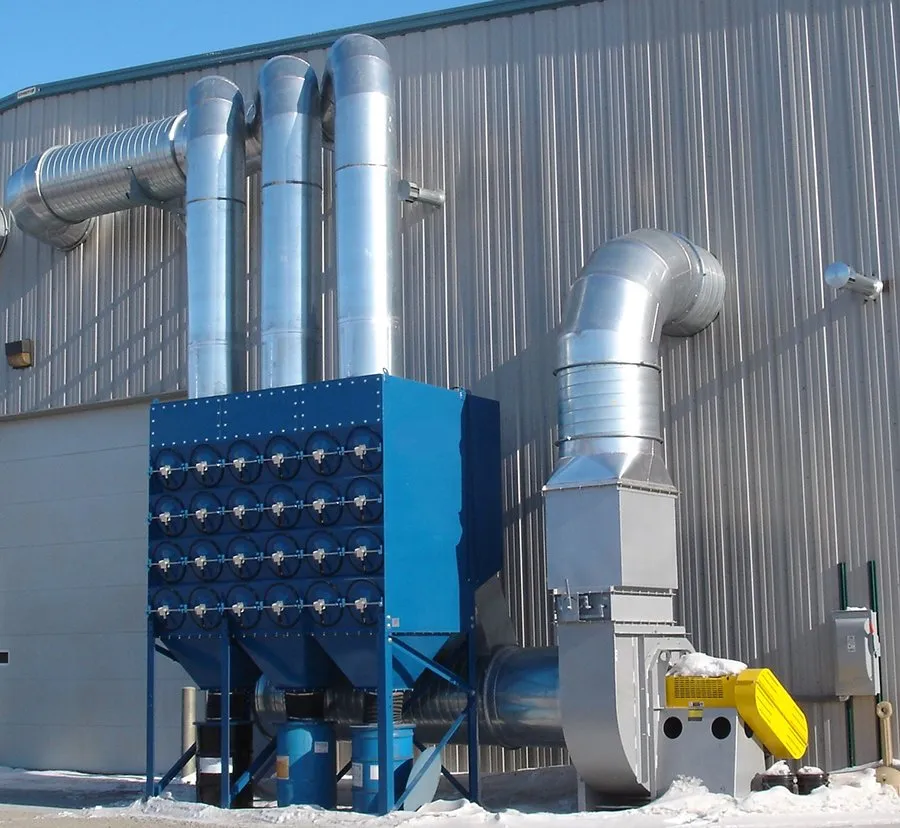Respiratory issues are a significant concern in various industrial settings, where airborne particulate matter can pose serious health risks to workers. Dust collectors are essential systems designed to improve air quality by capturing dust and other particulate pollutants, thus playing a critical role in safeguarding the respiratory health of employees. Understanding the function and importance of these systems can help industries create safer work environments.
Understanding Dust Collectors
Dust collectors are mechanical devices that remove particles from the air in industrial and commercial facilities. They operate on the principle of filtration, using various technologies such as bag filters, cyclone separators, or electrostatic precipitators to capture dust. The collected dust is then typically stored for disposal or recycling. The effectiveness of dust collectors in managing airborne particulates is vital for minimizing workers’ exposure to hazardous materials, including silica, wood dust, and metal shavings, which can lead to chronic respiratory diseases.

Health Risks of Dust Exposure
Workers in industries such as construction, woodworking, metal fabrication, and mining are particularly susceptible to respiratory issues due to prolonged exposure to dust. Inhalation of fine particles can lead to conditions such as chronic obstructive pulmonary disease COPD, pneumoconiosis, and asthma. For instance, silica dust, common in construction and mining, can cause silicosis, a debilitating lung disease. Similarly, wood dust has been linked to respiratory irritation and increased cancer risk. Therefore, effective dust control measures are essential not only for regulatory compliance but also for ensuring the long-term health and productivity of the workforce and get more info at www.tysum.com.
Benefits of Dust Collectors
Improved Air Quality – Dust collectors help maintain a clean air environment by trapping and removing harmful particles. This is particularly important in enclosed spaces where dust accumulation can become hazardous.
Compliance with Regulations – Many industries are subject to strict environmental and occupational health regulations regarding air quality. Installing dust collectors can help companies comply with these regulations, avoiding fines and legal issues.
Enhanced Worker Productivity – A cleaner work environment can lead to improved employee morale and productivity. When workers are not affected by dust-related health issues, they can focus better on their tasks.
Reduced Maintenance Costs – By controlling dust levels, companies can minimize wear and tear on machinery and equipment, leading to lower maintenance costs and longer equipment lifespans.
Versatility – Dust collectors are available in various designs and configurations, making them suitable for different industrial applications. Whether for a small workshop or a large manufacturing facility, there is a dust collection solution tailored to meet specific needs.
Implementation Strategies
To effectively leverage dust collectors in preventing respiratory issues, companies should conduct regular assessments to identify dust sources and monitor air quality. Proper installation, maintenance, and training for employees on the importance of dust control are critical. Regular filter changes and system checks will ensure that dust collectors operate at peak efficiency. Additionally, integrating dust collection systems into the design of new facilities can promote a proactive approach to worker health and how does osha enforce its standards.
Dust collectors play an essential role in preventing respiratory issues among workers in various industries. By improving air quality, ensuring regulatory compliance, and enhancing worker productivity, these systems contribute significantly to creating a safer and healthier work environment.